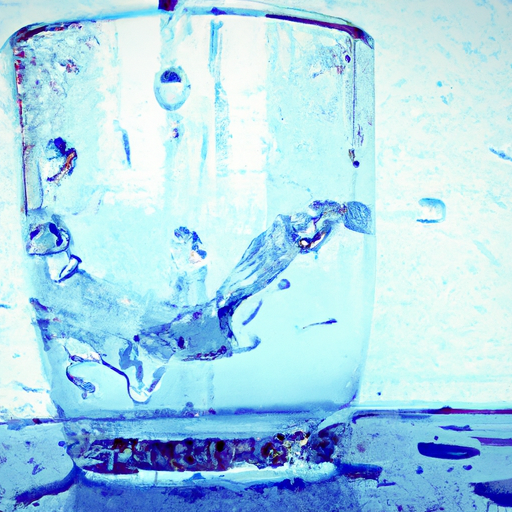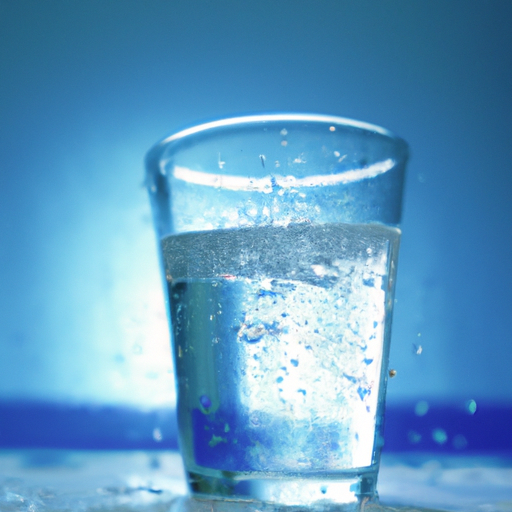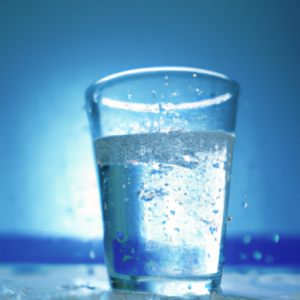In today’s fast-paced world, it’s easy to neglect our basic needs, particularly when it comes to staying hydrated. However, the importance of hydration cannot be overstated. Introducing “How To Stay Hydrated And Why It Matters,” a comprehensive guide that will not only teach you the best ways to stay hydrated but also provide you with a clear understanding of why it is vital for your overall health and well-being. Prepare to uncover the secrets to optimal hydration and be ready to embrace a healthier, more energized you.

Understanding Hydration
Definition of Hydration
Hydration refers to the process of providing adequate amounts of water to the body to maintain its optimum functioning. It involves replenishing the water lost through various metabolic processes, such as sweating, breathing, and urination. proper hydration is essential for overall health and well-being.
Role of Water in the Body
Water plays a crucial role in the functioning of our bodies. It makes up a large percentage of our body weight and is involved in almost every bodily function. Water acts as a medium for transporting nutrients, oxygen, and waste products throughout the body. It helps regulate body temperature, lubricates joints, and supports healthy digestion. Additionally, water is essential for the proper functioning of our cells, organs, and tissues.
What Happens When You’re Dehydrated
Dehydration occurs when the body doesn’t have enough water to carry out its normal functions. This can happen due to inadequate fluid intake, excessive sweating, diarrhea, vomiting, or certain medical conditions. When you’re dehydrated, your body struggles to maintain its fluid balance, which can lead to various health issues. Some common symptoms of dehydration include increased thirst, dry mouth, dizziness, fatigue, dark-colored urine, and decreased urine output. Severe dehydration can be life-threatening and requires immediate medical attention.
Why Hydration Matters
Short-term Impact on Physical Performance
Proper hydration is crucial for maintaining optimal physical performance, especially during exercise or intense physical activity. When you’re properly hydrated, your muscles and joints can function more efficiently, leading to improved endurance, strength, and overall performance. On the other hand, inadequate hydration can lead to muscle cramps, fatigue, and decreased exercise capacity.
Hydration and Cognitive Functions
Water also plays a vital role in cognitive functions. Studies have shown that even mild dehydration can negatively affect brain performance, including memory, attention, concentration, and mood. When you’re dehydrated, your brain cells don’t receive enough fluid, leading to decreased cognitive abilities and impaired mental performance. Staying hydrated is particularly important for tasks that require focus, concentration, and mental clarity.
Long-term Health Benefits of Staying Hydrated
Maintaining proper hydration levels can have numerous long-term health benefits. It helps prevent and manage various health conditions, including kidney stones, urinary tract infections, constipation, and even certain types of cancer. Proper hydration also promotes healthy skin by keeping it moisturized and reducing the risk of acne and other skin problems. Additionally, staying hydrated can support weight management, as it can help control appetite and improve digestion.
Factors Affecting Individual’s Hydration Needs
Physical Activities and Hydration
The amount of water you need to consume depends on several factors, including your physical activity level. When you engage in moderate to intense exercise or activities that cause you to sweat, such as running, cycling, or playing sports, your body loses water more rapidly. It’s crucial to replace these losses by drinking enough fluid before, during, and after exercise to maintain optimal hydration and performance.
Impact of Weather on Hydration
Weather conditions can significantly impact your hydration needs. In hot and humid weather, your body sweats more to regulate its temperature, leading to increased fluid loss. It’s essential to increase your fluid intake during hot weather to prevent dehydration. On the other hand, cold weather can also affect hydration as we tend to feel less thirsty, resulting in inadequate fluid intake. It’s important to drink water regularly, regardless of the weather conditions.
Impact of Health Conditions on Hydration
Certain health conditions, such as diabetes, kidney disease, and gastrointestinal disorders, can affect your body’s fluid balance. These conditions may increase your risk of dehydration and require you to monitor your fluid intake more closely. It’s important to consult with your healthcare provider to determine your specific hydration needs if you have any underlying health conditions.
How Age and Sex Influence Hydration Requirements
Age and sex can also influence an individual’s hydration requirements. Children and older adults are more susceptible to dehydration due to their smaller fluid reserves and reduced thirst sensation. Pregnant or breastfeeding women also have increased fluid needs to support the growth and development of the baby. It’s important for individuals of all ages and genders to be mindful of their hydration and ensure they’re drinking enough water.
Symptoms of Dehydration
Physical Symptoms of Dehydration
Dehydration can manifest through various physical symptoms. These may include increased thirst, dry mouth, dark-colored urine, infrequent urination, muscle cramps, dizziness, lightheadedness, dry skin, and fatigue. When you experience these symptoms, it’s essential to replenish your fluid levels by drinking water or other hydrating fluids.
Mental Symptoms of Dehydration
In addition to physical symptoms, dehydration can also affect your mental well-being. It can lead to difficulty concentrating, reduced cognitive function, confusion, irritability, and changes in mood. These mental symptoms can significantly impact your performance, productivity, and overall quality of life. Ensuring proper hydration is a simple and effective way to support optimal mental health.
How Chronic Dehydration Affects the Body
Chronic dehydration, which occurs when you regularly fail to meet your body’s fluid needs, can have severe consequences on your health. It can lead to the development of kidney stones, urinary tract infections, constipation, and even increase the risk of heart disease. Chronic dehydration can also negatively impact the appearance and health of your skin, causing dryness, wrinkles, and other skin issues. It’s important to prioritize consistent fluid intake to prevent chronic dehydration.

How to Monitor Your Hydration Level
Checking Your Urine Color
One simple way to monitor your hydration level is by checking the color of your urine. Hydrated individuals typically have pale yellow or straw-colored urine, while darker urine may indicate dehydration. Aim for a light color by drinking enough fluids throughout the day.
Assessing Your Thirst Level
Thirst is another clue to monitor your hydration. While feeling thirsty doesn’t always mean you’re dehydrated, it’s important to listen to your body’s signals and drink water when you’re thirsty. Don’t ignore thirst as it can be an early sign of dehydration.
Frequency and Amount of Urination
Another indicator of hydration is the frequency and amount of urination. In general, most adults urinate 4-7 times a day. If you notice a significant decrease in the frequency or volume of urination, it may be a sign of dehydration.
Monitoring Physical and Mental Performance
Monitoring your physical and mental performance can also provide insights into your hydration level. If you notice a decline in your exercise capacity, muscle cramps, difficulty concentrating, or changes in mood, it’s essential to consider whether dehydration may be a contributing factor.
Effective Ways to Stay Hydrated
Drinking Sufficient Water
The most straightforward way to stay hydrated is by drinking enough water throughout the day. While there is no one-size-fits-all recommendation, a general guideline is to aim for at least 8 glasses (64 ounces) of water per day. However, individual needs may vary based on factors such as age, weight, activity level, and climate. It’s important to listen to your body’s signals and drink water when you’re thirsty.
Eating Hydrating Foods
In addition to drinking water, consuming foods with high water content can contribute to your overall hydration. Foods such as watermelon, cucumbers, strawberries, oranges, and lettuce are excellent choices as they provide hydration along with essential vitamins and minerals. Including these hydrating foods in your diet can help supplement your fluid intake.
Avoiding Dehydrating Beverages
While certain beverages can contribute to your overall hydration, others can have a dehydrating effect on the body. It’s important to limit or avoid beverages that can lead to fluid loss, such as alcoholic drinks, caffeinated beverages like coffee and tea, and sugary drinks. These beverages can increase urine production and potentially contribute to dehydration.
Hydrating Before, During, and After Exercise
Proper hydration before, during, and after exercise is critical for maintaining performance and preventing dehydration. It’s recommended to drink water or a sports drink before starting your workout or physical activity to ensure adequate hydration. During exercise, aim to consume fluids regularly, especially if the activity duration exceeds 60 minutes. Finally, replenish your fluid levels after exercise to aid in recovery and rehydration.

Hydration Tips for Athletes
Importance of Hydration for Athletes
For athletes, maintaining proper hydration is essential to support optimal performance and prevent dehydration-related complications. When you participate in sports or engage in intense physical activities, your body loses more fluids through sweat. Inadequate hydration can lead to decreased endurance, muscle cramps, and an increased risk of heat-related illnesses. Staying hydrated can help enhance your athletic performance and promote overall health.
How Much Water Should Athletes Drink
The amount of water athletes should drink depends on factors such as exercise intensity, duration, and individual sweat rate. As a general guideline, athletes are recommended to consume 16-20 ounces of water 2-3 hours before exercise. During exercise, aim to drink 7-10 ounces every 10-20 minutes, and post-exercise, replenish fluid losses by drinking 16-24 ounces for every pound lost during exercise.
Choosing the Right Sports Drinks
While water is usually sufficient for hydration during most forms of physical activity, sports drinks can be beneficial for athletes engaged in prolonged, intense exercise sessions lasting more than 60 minutes. Sports drinks contain electrolytes like sodium and potassium, which help replace the minerals lost through sweat. If you’re participating in endurance activities or exercising in hot and humid conditions, sports drinks can provide the necessary hydration and electrolyte balance.
Hydration Strategies for Elders and Children
Hydration Needs for Elders
As we age, our body’s ability to retain water and regulate fluid balance decreases. This makes older adults more susceptible to dehydration. It’s crucial for older individuals to ensure they drink enough water throughout the day to maintain adequate hydration. Encouraging regular water intake, incorporating hydrating foods, and monitoring urine color can help prevent dehydration in the elderly population.
Importance of Hydration for Children
Children have higher water needs compared to adults due to their higher metabolic rates and increased physical activity. It’s important to teach children about the importance of staying hydrated and encourage them to drink water regularly. Additionally, including hydrating foods and beverages, such as fruits and flavored water, in their diet can ensure they meet their hydration needs.
Incorporating Hydrating Foods and Beverages in Their Diet
Incorporating hydrating foods and beverages in the diet of both elders and children can be an effective strategy to support their hydration needs. Foods like soups, smoothies, fruits, and vegetables have high water content and can help supplement fluid intake. Providing flavored water, herbal teas, or diluted fruit juices can also make drinking fluids more enjoyable for children and older adults.

Proper Hydration During Illness
Increased Hydration Needs During Illness
During illness, the body’s hydration needs may increase due to factors like fever, vomiting, diarrhea, and increased respiratory rate. These conditions can cause fluid loss and dehydration. It’s crucial to prioritize hydration during illness by consuming plenty of fluids, including water, herbal teas, clear broths, and electrolyte-rich beverages.
Choosing Hydrating Foods and Drinks When Sick
Certain foods and drinks can be more beneficial when you’re sick as they provide both hydration and essential nutrients. Clear fluids like water, electrolyte beverages, herbal teas, and broths can help replenish fluids and maintain hydration. Consuming easily digestible foods such as fruits, vegetables, smoothies, and soups can also support hydration levels while providing necessary vitamins and minerals.
Warning Signs of Severe Dehydration During Illness
Severe dehydration during illness can be dangerous and may require medical attention. It’s important to be aware of warning signs like excessive thirst, rapid heart rate, low blood pressure, dry and sunken eyes, lethargy, and confusion. If you or someone you know experiences these symptoms, seek immediate medical help.
Myths and Facts About Hydration
Drinking Eight Glasses of Water a Day
The myth of needing to drink eight glasses of water a day is not supported by scientific evidence. Fluid needs vary depending on numerous factors, including age, weight, activity level, and climate. Rather than focusing on a specific number, it’s important to listen to your body’s thirst signals and aim to stay properly hydrated throughout the day.
You can stay Hydrated by Drinking Any Fluids
While it’s true that fluids other than water can contribute to your overall hydration, not all beverages are equally hydrating. Caffeinated beverages like coffee and tea can have a mild diuretic effect, leading to increased urine production and potential dehydration. It’s best to prioritize water as the primary source of hydration and limit or avoid dehydrating fluids.
Tea and Coffee Cause Dehydration
Contrary to popular belief, moderate consumption of tea and coffee is unlikely to cause dehydration in most individuals. While caffeine in these beverages can have a mild diuretic effect, the fluid content of tea and coffee counteracts this effect. However, excessive caffeine consumption or drinking highly concentrated forms of tea and coffee may have a more significant diuretic effect.
You’re Not Dehydrated If You’re Not Thirsty
While thirst is a reliable indicator of dehydration, relying solely on thirst to determine your hydration status may not be sufficient. Thirst can be delayed, especially in older adults and children, and may not accurately reflect your body’s actual hydration needs. It’s always best to be proactive and ensure you’re consuming enough fluids even if you don’t feel thirsty.
In conclusion, understanding hydration and its importance is essential for maintaining overall health and well-being. By staying hydrated through proper fluid intake, consuming hydrating foods, and being mindful of individual hydration needs, you can support physical performance, cognitive function, and prevent dehydration-related complications. Remember to monitor your hydration level through urine color, thirst, urination frequency, and physical and mental performance. By following effective hydration strategies, you can ensure you stay properly hydrated and reap the numerous health benefits associated with it.


